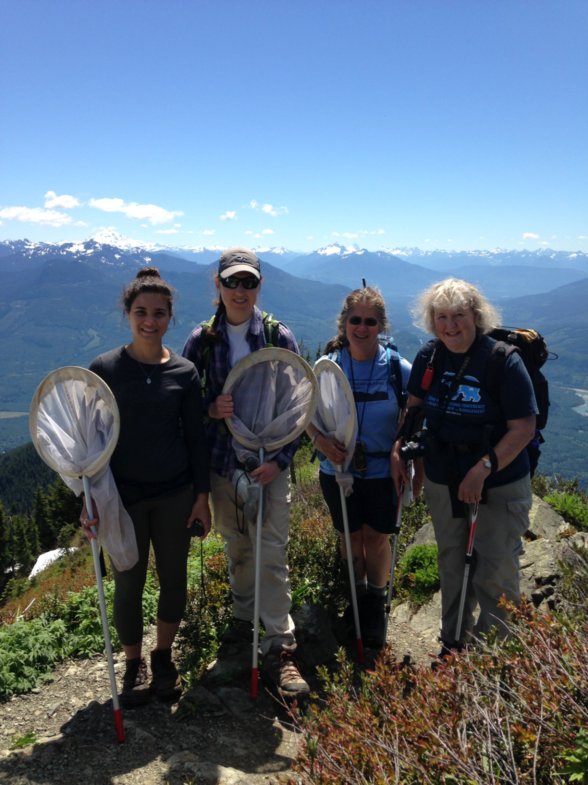Rebecca Evans Capstone Experience
Rebecca Evans 2017 Capstone Experience

Rebecca Evans chose to complete her CNSPIRE certificate by spending the summer of 2017 as a geo-scientist park intern through the AmeriCorps–National Park Service park internship program. During her internship, she worked closely with the North Coast and Cascades network (NWCC), which comprises multiple national parks including: Ebey’s Landing National Historical Reserve (EBLA), Fort Vancouver National Historic Site (FOVA), Lewis & Clark National Historical Park (LEWI), Mount Rainier National Park (MORA), North Cascades National Park Complex (NOCA), Olympic National Park (OLYM), San Juan Island National Historical Park (SAJH). There, she worked with park supervisors and staff across the network to educate staff and visitors on the effects of nitrogen (N) deposition.
Nitrogen deposition has been identified and studied in Europe and the Eastern United States with negative ecological consequences such as N enrichment, eutrophication, and leaching. The North Cascade Complex is attempting to determine critical N-deposition loads in the parks and educate staff and visitors on the effects, consequences, and policies of N-deposition.
As part of her internship, she developed public research briefs and educational material designed to educate visitors, specifically students, on N-deposition. She led three different educational campaigns- the Cascade Butterfly Project, North Cascades National Park Dragonfly Mercury Monitoring Project, and the North Cascades National Park Lichen Monitoring Project- where she gained valuable experience developing strategies for teaching others about the impact of atmospheric deposition on the sensitive ecosystems of the North Cascades. She also played a key role in updating and improving the Resource Learning Center website for the network by developing and leading several monitoring and education programs. There are 18 Resource Learning Centers and websites across the county and these serve as clearing houses for ongoing research, science, and cultural history in addition to volunteer and research opportunities and park information.
At the end of her internship, she traveled to Seattle to attend a meeting with NPS air resource staff and fellow researchers to discuss her research and educational outcomes, and help identify what changes are needed in the light of increased global change and N-deposition in the Pacific Northwest.
The Cascades Butterfly Project is a long-term monitoring project to monitor the effects of climate change on butterfly and plant populations. This project relies on citizen scientists who work with National Park Service biologists to track subalpine butterfly abundances and plant flowering patterns in the Cascade Mountains of Washington. The goal of this project is use butterflies as indicator species of climate change in subalpine systems. Evans participated in weekly monitoring, and taught volunteers monitoring procedures and the importance of our work and the science behind it.

This is a yearly nationwide project that trains elementary, middle, and high school students to be citizen scientists. Students participate in collecting dragonfly larvae to monitor mercury pollution across NPS lakes. Evans lead other interns and student groups at three mountain lakes to collect dragonfly larvae which were submitted to The University of Maine. In addition to sampling efforts, Evans also educated students on the effects of mercury, dragonfly lifestyles, and indicator species, and led nature hikes to help students understand the fragile, native ecological processes at these lakes and the impact of N-deposition on these systems.

This project was designed to develop a citizen scientist project for monitoring lichen to identify rates of N-deposition in sub-alpine and alpine areas. Evans used “i-naturalist” to create a library of target lichen species that are un-sensitive, moderately sensitive, and highly sensitive to N-deposition. She taught the Environmental Learning Center park staff about the science of N-deposition and how worked with them to develop educational materials that could bring this complex topic to the public. She also lead a group of middle schoolers at the learning center in a lichen walk with “i-naturalist” and taught them not only about the effects of N-deposition, but how we can use lichens as indicator species, and how to apply their knowledge back at home.
